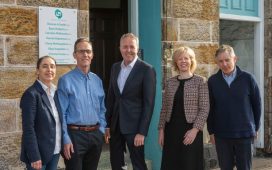Pregnancy and early parenthood are the best times to work with Indigenous families to break the cycle of intergenerational trauma, according to a groundbreaking new research project.
Researchers have found Indigenous people experience as many as 10-12 different traumatic events in a lifetime, and Aboriginal communities have very elevated rates of PTSD.
“Complex trauma” is the term to describe cumulative exposure to multiple traumatic experiences over the course of a childhood and is being seen as separate to PTSD, which might be suffered by exposure to a single traumatic event.
Childhood abuse and prolonged stress, affecting up to 50% of children worldwide, are the most common cause of complex trauma.
Growing evidence demonstrates this is a major public health issue, according to Dr Cath Chamberlain, the lead researcher on the “Healing the past by nurturing the future” project. The effects of trauma in early childhood can affect physical and mental health for a lifetime.
Dr Chamberlain said Aboriginal and Torres Strait Islander people are particularly affected by complex trauma following a legacy of colonisation, which includes state-sanctioned systematic removal of Aboriginal children from families and ongoing discrimination.
The project outcomes could help stem the rising rates of Aboriginal child removal by making sure parents are supported early and babies are able to grow in a safe and nurturing environment.
The project aims to co-design perinatal awareness, recognition, assessment and support strategies for Indigenous parents experiencing complex trauma, for whom pregnancy and birth can trigger memory of traumatic childhood.
“The perinatal [before birth] period is a really important time where we can support parents to understand and manage feelings of trauma-related distress so they can nurture their baby and enjoy the healing love children bring into the world with them,” Chamberlain said.
“It’s a time when women and men often turn their lives around, when most of their experiences are positive. It’s a time for a fresh start and hope for the future. And we see them a lot – for the first time since childhood, they’re coming in for health check-ups,” she said.
“There’s a lot of science behind why we’re focusing on this period.”
There is also a strong cultural focus. The project is Indigenous designed and led, and wants to bring together western evidence and Indigenous knowledge, including Aboriginal concepts of wellbeing and caring for babies and young children.
“Children are sacred, and there is a lot of rich cultural knowledge about nurturing and promoting safety for our babies that we are starting to learn from Aboriginal researchers,” Chamberlain said.
“We want to try and reclaim some of that and bring that sense of safety back for children.”
Dr Catherine Chamberlain received the 2019 Lowitja Institute award for Aboriginal and Torres Strait Islander health research leadership and excellence.














